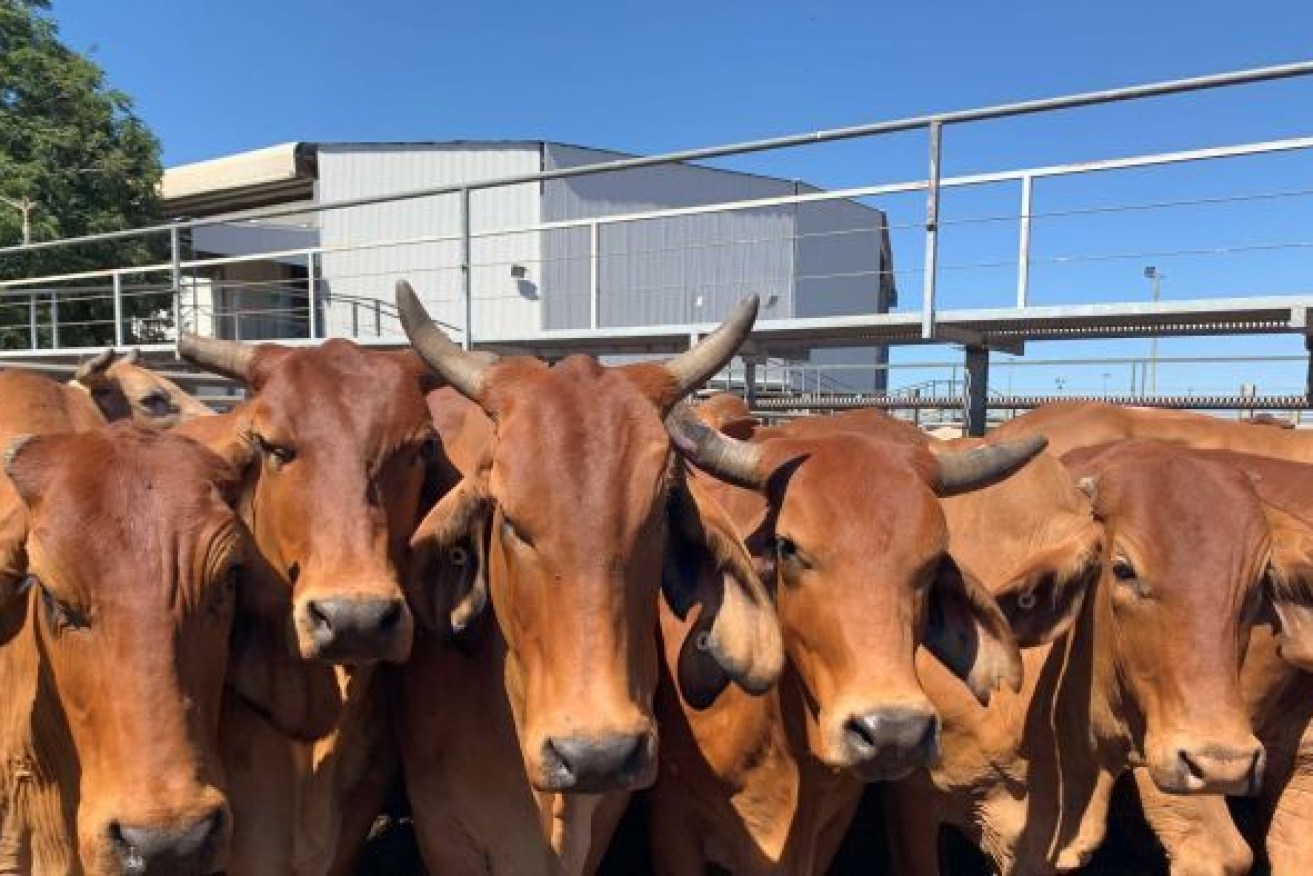Not just hot air: How Qld researchers are solving beef’s wicked methane problem
Researchers led by the University of Queensland have built a ‘Google Maps’ style algorithm for the beef industry that promises to cut 85 per cent of greenhouse gas emissions from livestock production globally without raising costs or slashing yields.


A pen of Red Brahman cattle at a saleyard in the state's northwest. Photo: ABC
The remarkable forecast stems from a concept where people using the platform can enter details about their operation on a data platform, allowing the algorithm to calculate what needs to change to lower methane emissions from livestock.
The project’s lead researcher Adam Castonguay, told InQueensland that every beef production area on the planet had been mapped within 10 kilometres, giving users unprecedented visibility of what their land and cattle could achieve to reach sustainability goals.
“I would describe this as game-changing technology, for sure,” he said.
Castonguay said the technology would be of enormous interest and benefit to industry and government policy makers, as efforts are made to meet beef’s seemingly ‘wicked problem’ – how to meet the globe’s growing demand for animal protein while achieving lowered emissions without blowing out production costs and impacting farmer livelihoods.
Queensland produces and processes about half of Australia’s beef output, with a gross value of about $16 billion nationally last year.
While the use of data, algorithms and super computers may sound complex, the concept is simple, according to Castonguay.
As he explains, it’s a matter of producers aligning the size and scale of their enterprise and management approach to their land type, and letting the algorithm suggest what other inputs they could be using or different land-use practices they could be implementing to adjust their emission levels.
The outcome will also be determined by the farmer’s business goals, depending on whether their imperative is to drive down production costs or emissions, or both.
“This can be achieved by opting for more efficient feeds and locations, and restoring forests in inefficient areas, without increasing global costs of production or reducing demand for beef,” Castonguay said.
“We have mapped out the most efficient locations around the world to produce beef and the maps change when factors are altered, such as how much society values reducing emissions over reducing production costs.
“This has given us an unprecedented insight into the ‘what, where, and why’ of beef production at a global level and decisions about the future of the industry can be informed by inputting trade-offs and opportunities.”
The research group says the tool could be used by governments and industry to develop policy and strategy.
“There will be continued global demand for beef and there are a huge number of livelihoods associated with it, so this research aims to find an appropriate balance to maintain the bottom line of the sector,” Castonguay said.
“Further economic modelling and fine-tuning the data for specific locations would reveal the implications of any changes, including on beef prices for consumers.”
Castonguay said the optimisation method developed by the team using mapping technology overcame historic roadblocks to finding an environmental-economic balance.
“There are many innovations in cattle feed to increase productivity or reduce emissions which have not been analysed as a trade-off with other values and goals,” he said.
“Our results highlight the massive potential for improvements in the way we produce beef, to help us to meet global sustainability goals.
“The extent to which we reduce emissions and production costs depends on our values or preferences as a society.”








